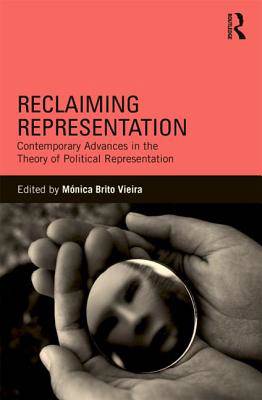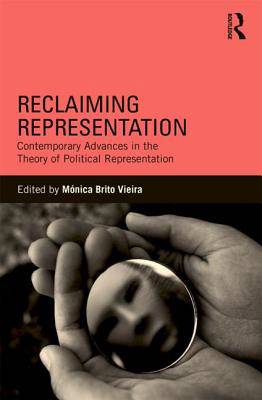
- Retrait gratuit dans votre magasin Club
- 7.000.000 titres dans notre catalogue
- Payer en toute sécurité
- Toujours un magasin près de chez vous
- Retrait gratuit dans votre magasin Club
- 7.000.000 titres dans notre catalogue
- Payer en toute sécurité
- Toujours un magasin près de chez vous
Reclaiming Representation
Contemporary Advances in the Theory of Political Representation
Description
Representation is integral to the functioning and legitimacy of modern government. Yet political theorists have often been reluctant to engage directly with questions of representation, and empirical political scientists have closed down such questions by making representation synonymous with congruence. Conceptually unproblematic and normatively inert for some, representation has been deemed impossible to pin down analytically and to defend normatively by others. But this is changing. Political theorists are now turning to political representation as a subject worthy of theoretical investigation in its own right. In their effort to rework the theory of political representation, they are also hoping to impact how representation is assessed and studied empirically.
This volume gathers together chapters by key contributors to what amounts to a "representative turn" in political theory. Their approaches and emphases are diverse, but taken together they represent a compelling and original attempt at re-conceptualizing political representation and critically assessing the main theoretical and political implications following from this, namely for how we conceive and assess representative democracy. Each contributor is invited to look back and ahead on the transformations to democratic self-government introduced by the theory and practice of political representation. Representation and democracy: outright conflict, uneasy cohabitation, or reciprocal constitutiveness? For those who think democracy would be better without representation, this volume is a must-read: it will question their assumptions, while also exploring some of the reasons for their discomfort.
Reclaiming Representation is essential reading for scholars and graduate researchers committed to staying on top of new developments in the field.
Spécifications
Parties prenantes
- Editeur:
Contenu
- Nombre de pages :
- 244
- Langue:
- Anglais
- Collection :
Caractéristiques
- EAN:
- 9781138928510
- Date de parution :
- 25-05-17
- Format:
- Livre relié
- Format numérique:
- Genaaid
- Dimensions :
- 152 mm x 229 mm
- Poids :
- 475 g






